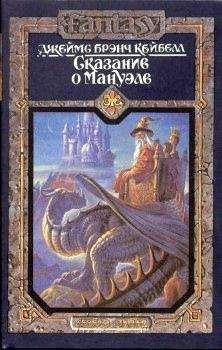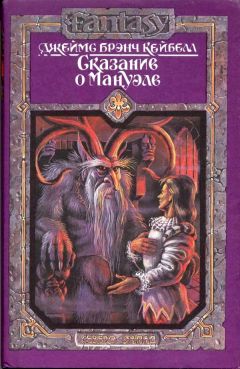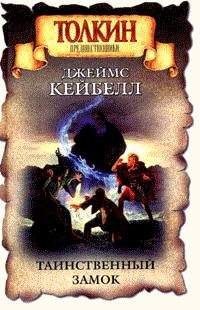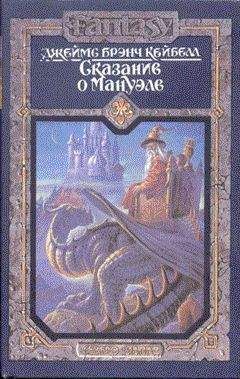Well, this book attempts to supply that desideratum, and is, so far as the writer is aware, the one fairly complete epitome in modern English of the Manuelian historiography not included by Lewistam which has yet been prepared.
It is obvious, of course, that in a single volume of this bulk there could not be included more than a selection from the great body of myths which, we may assume, have accumulated gradually round the mighty though shadowy figure of Manuel the Redeemer. Instead, my aim has been to make choice of such stories and traditions as seemed most fit to be cast into the shape of a connected narrative and regular sequence of events; to lend to all that wholesome, edifying and optimistic tone which in reading-matter is so generally preferable to mere intelligence; and meanwhile to preserve as much of the quaint style of the gestes as is consistent with clearness. Then, too, in the original mediaeval romances, both in their prose and metrical form, there are occasional allusions to natural processes which make these stories unfit to be placed in the hands of American readers, who, as a body, attest their respectability by insisting that their parents were guilty of unmentionable conduct; and such passages of course necessitate considerable editing.
II
No schoolboy (and far less the scholastic chronicler of those last final upshots for whose furtherance «Hannibal invaded Rome and Erasmus wrote in Oxford cloisters») needs nowadays to be told that the Manuel of these legends is to all intents a fictitious person. That in the earlier half of the thirteenth century there was ruling over the Poictoumois a powerful chieftain named Manuel, nobody has of late disputed seriously. But the events of the actual human existence of this Lord of Poictesme—very much as the Emperor Frederick Barbarossa has been identified with the wood-demon Barbatos, and the prophet Elijah, «caught up into the chariot of the Vedic Vayu,» has become one with the Slavonic Perun,—have been inextricably blended with the legends of the Dirghic Manu-Elul, Lord of August.
Thus, even the irregularity in Manuel's eyes is taken by Vanderhoffen, in his Tudor Tales, to be a myth connecting Manuel with the Vedic Rudra and the Russian Magarko and the Servian Vii,—"and every beneficent storm-god represented with his eye perpetually winking (like sheet lightning), lest his concentrated look (the thunderbolt) should reduce the universe to ashes… His watery parentage, and the storm-god's relationship with a swan-maiden of the Apsarasas (typifying the mists and clouds), and with Freydis the fire queen, are equally obvious: whereas Niafer is plainly a variant of Nephthys, Lady of the House, whose personality Dr. Budge sums up as 'the goddess of the death which is not eternal,' or Nerthus, the Subterranean Earth, which the warm rainstorm quickens to life and fertility."
All this seems dull enough to be plausible. Yet no less an authority than Charles Garnier has replied, in rather indignant rebuttal: «Qu'ont étè en réalité Manuel et Siegfried, Achille et Rustem? Par quels exploits ont-ils mérité l'éternelle admiration que leur ont vouée les hommes de leur race? Nul ne répondra jamais à ces questions… Mais Poictesme croit à la réalité de cette figure que ses romans ont faite si belle, car le pays n'a pas d'autre histoire. Cette figure du Comte Manuel est réelle d'ailleurs, car elle est l'image purifiée de la race qui l'a produite, et, si on peut s'exprimer ainsi, l'incarnation de son génie.»
–Which is quite just, and, when you come to think it over, proves Dom Manuel to be nowadays, for practical purposes, at least as real as Dr. Paul Vanderhoffen.
III
Between the two main epic cycles of Poictesme, as embodied in Les Gestes de Manuel and La Haulte Histoire de Jurgen, more or less comparison is inevitable. And Codman, I believe, has put the gist of the matter succinctly enough.
Says Codman: «The Gestes are mundane stories, the History is a cosmic affair, in that, where Manuel faces the world, Jurgen considers the universe… Dom Manuel is the Achilles of Poictesme, as Jurgen is its Ulysses.»
And, roughly, the distinction serves. Yet minute consideration discovers, I think, in these two sets of legends a more profound, if subtler, difference, in the handling of the protagonist: with Jurgen all of the physical and mental man is rendered as a matter of course; whereas in dealing with Manuel there is, always, I believe, a certain perceptible and strange, if not inexplicable, aloofness. Manuel did thus and thus, Manuel said so and so, these legends recount: yes, but never anywhere have I detected any firm assertion as to Manuel's thoughts and emotions, nor any peep into the workings of this hero's mind. He is «done» from the outside, always at arm's length. It is not merely that Manuel's nature is tinctured with the cool unhumanness of his father the water-demon: rather, these old poets of Poictesme would seem, whether of intention or no, to have dealt with their national hero as a person, howsoever admirable in many of his exploits, whom they have never been able altogether to love, or entirely to sympathize with, or to view quite without distrust.
There are several ways of accounting for this fact,—ranging from the hurtful as well as beneficent aspect of the storm-god, to the natural inability of a poet to understand a man who succeeds in everything: but the fact is, after all, of no present importance save that it may well have prompted Lewistam to scamp his dealings with this always somewhat ambiguous Manuel, and so to omit the hereinafter included legends, as unsuited to the clearer and sunnier atmosphere of the Popular Tales.
For my part, I am quite content, in this Comedy of Appearances, to follow the old romancers' lead. «Such and such things were said and done by our great Manuel,» they say to us, in effect: «such and such were the appearances, and do you make what you can of them.»
I say that, too, with the addition that in real life, also, such is the fashion in which we are compelled to deal with all happenings and with all our fellows, whether they wear or lack the gaudy name of heroism.
Dumbarton Grange
October, 1920
Chronology of James Branch Cabell's Published Works
1879: April 14, James Branch Cabell born at 101 East Franklin Street, Richmond, Virginia.
1894: Matriculated College of William and Mary at age fifteen.
1898: Graduated from college, where he had taught French and Greek as an undergraduate.
1898—1900: Worked as a newspaper reporter in New York.
1901: Reporter in Richmond; first stories accepted for publication; suspected of murder in Richmond.
1902: Seven stories published in national magazines.
1904: The Eagle's Shadow.
1905: The Line of Love.
1907: Branchiana (genealogy); Gallantry.
1909: The Cords of Vanity; Chivalry.
1911: Branch of Abingdom (genealogy).
1911—1913: Employed in office of the Branch (his uncle's) coal mines in West Virginia
1913: The Soul of Melicent (later title Domnei); November 8, married Priscilla Bradley Shepard.
1915: The Rivet in Grandfather's Neck; August 25, Ballard Hartwell Cabell born; The Major's and Their Marriages (his wife's genealogy).
1916: The Certain Hour; From the Hidden Way.
1917: The Cream of the Jest.
1919: Beyond Life; Jurgen (suppressed January 14, 1920, cleared October 19, 1922).
1920: The Judging of Jurgen.
1921: Figures of Earth; Taboo; Joseph Hergesheimer; The Jewel Merchants; edited October, November, and December issues of the Reviewer.
1922: The Lineage of Lichfield.
1923: The High Place.
1924: Straws and Prayer-Books.
1926: The Silver Stallion; The Music from Behind the Moon.
1927: Something About Eve.
1928: The White Robe; Ballades from the Hidden Way.
1929: Sonnets from Antan; The Way of Ecben.
1927—1930: The Storisende Edition of the The Works of James Branch Cabell with prefaces, in eighteen volumes.
1930: Some of Us; Between Dawn and Sunrise (selections edited by John Macy).
1932: These Restless Heads (dropped James from name).
1933: Special Delivery.
1934: Smirt; Ladies and Gentlemen.
1935: Smith.
1936: Preface to the Past (prefaces from the Storisende Edition).
1937: Smire.
1938: The King Was in His Counting House.
1940: Hamlet Had an Uncle.
1942: The First Gentleman of America.
1943: The St. Johns (with A.J. Hanna).
1946: There Were Two Pirates.
1947: Let Me Lie.
1948: The Witch-Woman.
1949: The Devil's Own Dear Son; March 29, death of Priscilla Bradley Cabell.
1950: June 15, married Margaret Waller Freeman.
1952: Quiet Please.
1955: As I Remember It.
1958: May 5, died at 3201 Monument Avenue, Richmond, Virginia.





